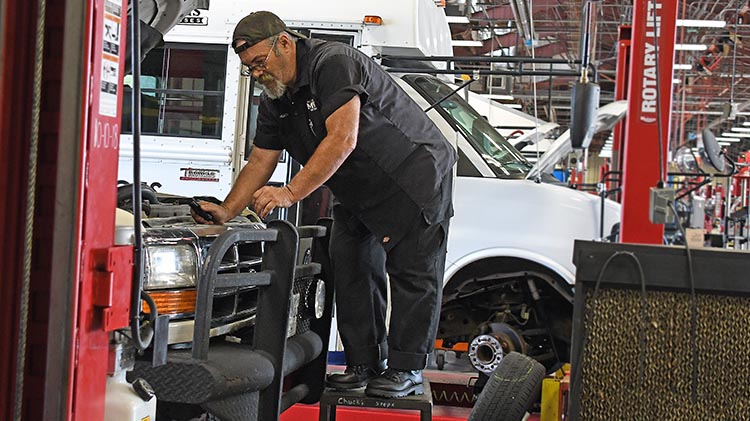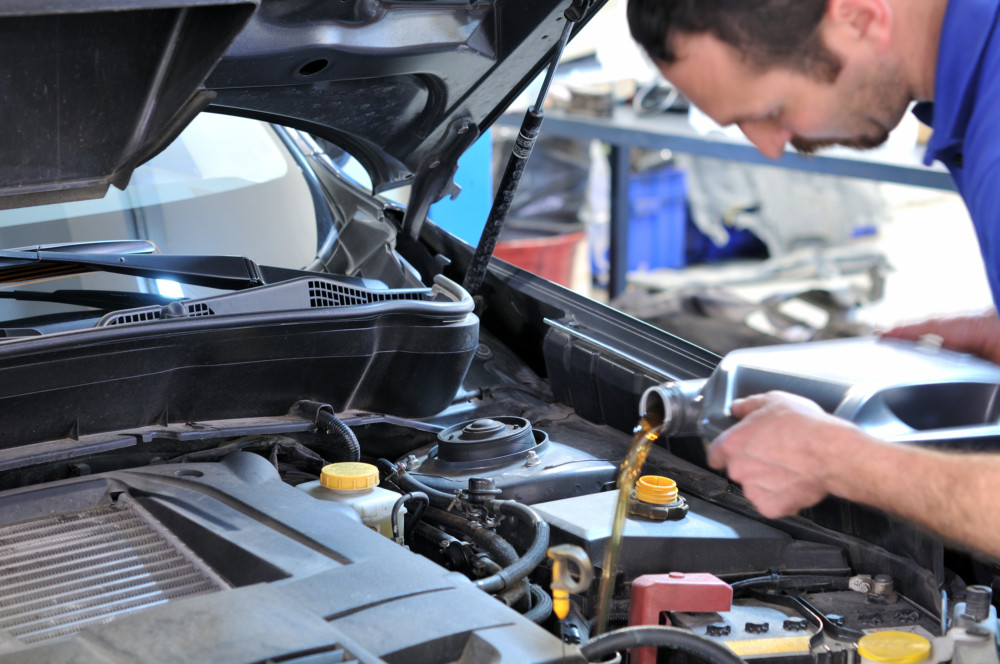
Your vehicle's exhaust system plays a crucial duty in reducing damaging emissions, enhancing fuel effectiveness, and making certain the total smooth procedure of your automobile. In time, numerous parts of the exhaust system can come to be worn, rusted, or damaged, possibly leading to reduced efficiency and enhanced exhausts. Comprehending just how to take care of or replace your cars and truck's exhaust system can help you attend to small concerns prior to they become pricey repair work and avoid damages to other automobile elements.
Signs That Your Exhaust System Needs Focus. Before determining whether to fix or change your automobile's exhaust system, it is essential to recognize the signs and symptoms of a failing system. Some usual indicators include:
Loud Sounds: If your cars and truck unexpectedly begins making loud roaring or roaring sounds, it may show a hole or split in the exhaust pipes or muffler. These concerns usually arise from deterioration or physical damage. Foul Scents: A strong, sulfur-like odor or exhaust fumes inside the vehicle can signify a problem with the catalytic converter or muffler. This is not just undesirable but can also be harmful, as exhaust fumes going into the cabin might lead to carbon monoxide poisoning. Lowered Fuel Efficiency: A defective exhaust system can impact the engine's performance, causing it to shed even more fuel than necessary. It could be an indicator that the exhaust system requires repair work if you see you're stopping for gas a lot more regularly. Loss of Power: An obstructed or harmed exhaust system can limit engine air flow, leading to a visible loss of power, specifically when increasing. Examine Engine Light: A malfunctioning oxygen sensing unit or catalytic converter may cause the check engine light. It's crucial to get your exhaust system examined by an expert if this happens. DIY Exhaust System Repair. For minor issues, such as little openings or leaks, you may be able to fix your exhaust system on your own. Here are a couple of DIY solutions:

Exhaust Patches: Tiny openings in the exhaust pipelines can usually be patched utilizing exhaust repair work packages. These sets commonly consist of a heat-resistant tape or fluid sealer that can momentarily repair small leaks. This is not a permanent solution, and the fixing may put on out over time.
Replacing the Muffler: If your muffler is rusted or damaged, it can be changed relatively conveniently. Mufflers are relatively low-cost contrasted to various other exhaust elements, and a substitute can bring back proper sound levels and engine function.
Clamps and Gaskets: Damaged or loose clamps might trigger exhaust system components to rattle or leakage. Tightening up or replacing these clamps and gaskets can quit and avoid more issues exhaust leakages from creating.
Short-lived Exhaust Plaster: If you are not able to deal with a hole or fracture immediately, using an exhaust plaster is a short-term repair that can aid stop exhaust leakages up until you can obtain it appropriately fixed.
While these do it yourself fixes can address small concerns, it's important to keep in mind that any kind of major exhaust system damage calls for specialist treatment.
When to Change the Exhaust System,. A complete replacement might be needed if your exhaust system is beyond repair or has actually received considerable damage. Some indications that a full replacement is needed consist of:
Too Much Rust and Rust: If rust has seriously damaged numerous components of the exhaust system, such as the pipelines or muffler, replacement is frequently the most effective alternative. Rust weakens exhaust elements, making them more most likely to fail. Damaged Catalytic Converter: A malfunctioning catalytic converter is among one of the most pricey parts to replace, however it is essential for your car's exhaust system. If it becomes stopped up or damaged, it can create your engine to get too hot, leading to engine failing or bad efficiency. Split Exhaust Manifold: The exhaust manifold collects gases from the engine and channels them right into the exhaust system. Cracks in the manifold can trigger harmful gases to leakage right into the engine bay, causing getting too hot and engine damages. If any one of these components are jeopardized, it's time to replace the damaged parts to make sure the safety and effectiveness of your automobile.

The Value of Expert Aid. While small exhaust system repair work can in some cases be done in the house, even more substantial problems are best managed by specialists. A mechanic has the know-how and specialized tools to correctly fix and detect or replace your automobile's exhaust system. Additionally, exhaust repair services frequently call for knowledge of your vehicle's discharge system, which can vary based on make and model. A specialist mechanic will make sure that substitute parts are compatible with your vehicle and that they satisfy safety and ecological policies.
Attempting to do complex exhaust system repairs on your own can cause more damage and safety dangers. Improper installation of a new catalytic converter or muffler could result in hazardous exhaust leakages or reduced engine efficiency.
Verdict. The exhaust system is a vital part of your vehicle's general performance. If you observe any of the usual indications of a falling short exhaust system, it's crucial to act swiftly to stop more damage and boost fuel effectiveness. While minor problems like loose clamps or little holes can commonly be fixed in your home, more severe issues-- such as a harmed catalytic converter or exhaust manifold-- need specialist assistance. Normal upkeep and timely repair work can expand the life of your exhaust system, boost your automobile's efficiency, and maintain damaging discharges in check. If doubtful, constantly consult with a trusted auto mechanic to guarantee your exhaust system is functioning correctly.
Navigation
Home
Latest Posts
Streamline Your Auto Repair Works with Our Components Credit Application
Published Dec 21, 24
1 min read
Discover Affordable Nissan Models Near You
Published Dec 21, 24
1 min read
10 Reasons Why the Jeep Grand Cherokee Is the Ultimate SUV for Families
Published Dec 21, 24
1 min read